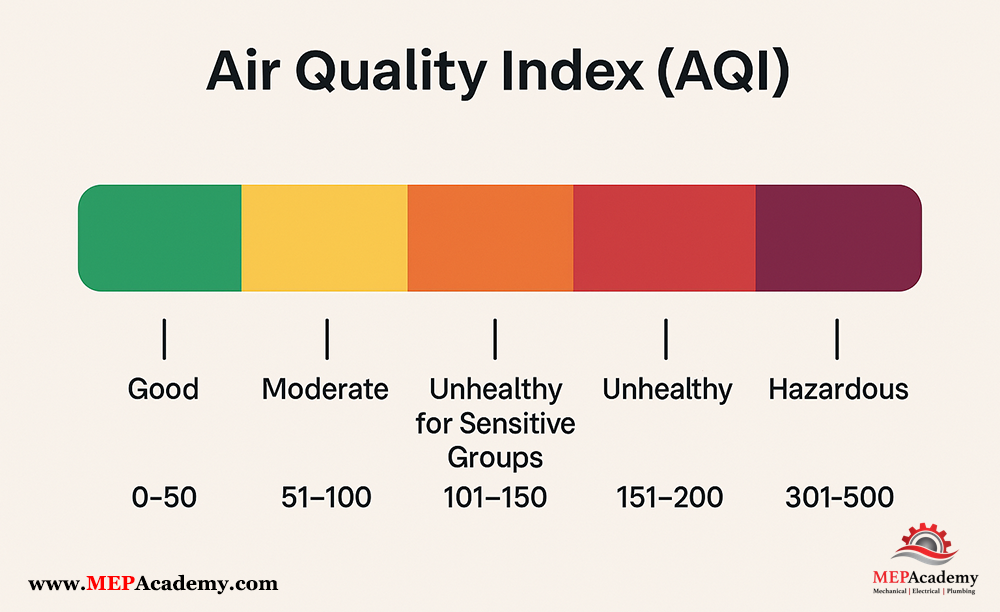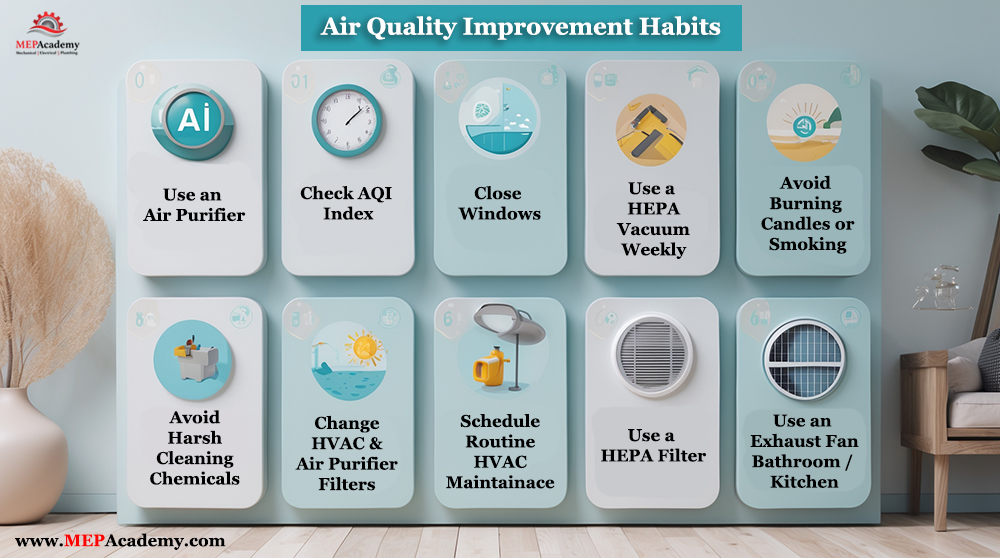Can Air Pollution Cause Depression?
Yes, recent scientific studies show that long-term exposure to air pollution—especially fine particulate matter and sulfur dioxide—can significantly increase the risk of depression. Poor air quality affects brain chemistry, mood regulation, and stress levels, making clean air essential for mental wellness.
We all know that dirty air can hurt your lungs — but what about your mind?
A groundbreaking 2024 study has linked air pollution to a sharp rise in depression risk, especially in areas with elevated levels of sulfur dioxide and fine particulate matter (PM2.5). That means what you breathe every day may be influencing more than just your physical health — it could be weighing heavily on your mood, motivation, and emotional balance.
In this post, we’ll break down the science, explore what this means for your mental health, and show you how tools like air purifiers and AQI tracking can help you reclaim control of your indoor air — and your peace of mind
Recent research has uncovered a powerful link between air pollution and mental health, particularly depression. A 2024 study published in The Innovation (ScienceDirect) revealed that for every increase in combined exposure to air pollutants, the risk of depression jumped by a striking 38%. Among all the pollutants studied, sulfur dioxide (SO₂) emerged as the top contributor to depressive symptoms.
👉 Read the study here
These findings reinforce earlier evidence that poor air quality not only harms our lungs but also affects our brain and emotional health. Pollutants like PM₂.₅ (fine particulate matter) have been associated with cognitive decline and a higher risk of neurological diseases like dementia.
Why Air Purifiers Matter
Indoor air isn’t immune to pollution — in fact, it can be just as bad or worse than outdoor air, especially when ventilation is poor or pollutants seep indoors. That’s where air purifiers become essential:
- Remove Fine Particles: HEPA-filter air purifiers trap PM₂.₅ and other airborne particles, reducing overall exposure.
- Eliminate Harmful Gases: Advanced purifiers with activated carbon filters can capture gaseous pollutants like SO₂, one of the key depression-linked toxins.
- Support Mental Clarity and Health: Cleaner air can promote better cognitive performance, mood stability, and general well-being.
Don’t Forget to Monitor AQI (Air Quality Index)
While purifying indoor air is a great step, it’s equally important to stay informed about outdoor air conditions. The Air Quality Index (AQI) is a simple, real-time tool that tells you how clean or polluted the air is — and what associated health effects might be a concern.

Here’s why tracking AQI matters:
- Avoid Exposure on High AQI Days: When the AQI is above 100 (especially in sensitive groups) or over 150 (unhealthy for all), it’s wise to reduce or avoid outdoor physical activity, especially activities like running or heavy labor.
- Plan Accordingly: Apps and websites can give you AQI forecasts so you can plan walks, workouts, or commutes during cleaner air windows.
- Protect Vulnerable Individuals: Children, elderly adults, and people with asthma, allergies, or depression should be extra cautious on days when air quality dips.
Take Action for Better Air and Better Mental Health
Air pollution doesn’t just affect your lungs — it weighs on your mood, clarity, and overall mental health. Investing in a quality air purifier for your home or workspace, and regularly checking your local AQI, are two powerful ways to protect both your body and mind.
Checkout the latest Air Purifier Prices.
If you’ve been feeling fatigued, down, or anxious, the air you’re breathing could be part of the problem. Small changes in your environment can lead to major improvements in how you feel day to day.
Indoor Air Quality Habits Checklist

- ✔ Use a certified HEPA air purifier in main living areas and bedrooms.
- ✔ Keep windows closed on high AQI days (AQI > 100).
- ✔ Monitor daily AQI using a reliable app or website (e.g., AirNow.gov).
- ✔ Avoid burning candles, incense, or smoking indoors.
- ✔ Vacuum with a HEPA-filter vacuum at least once a week.
- ✔ Regularly change HVAC and air purifier filters (monthly or as recommended).
- ✔ Use exhaust fans in kitchen and bathroom to reduce humidity and pollutants.
- ✔ Keep houseplants to a minimum if mold is a concern.
- ✔ Avoid using harsh chemical cleaners; opt for natural alternatives.
- ✔ Schedule routine HVAC maintenance to ensure optimal airflow and filtration.
Want a printable version? Download the checklist as a Word doc







